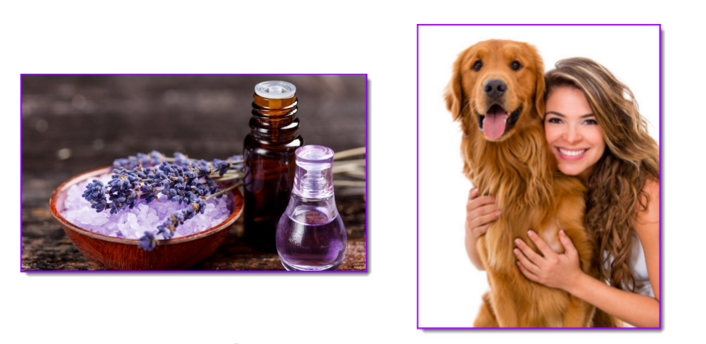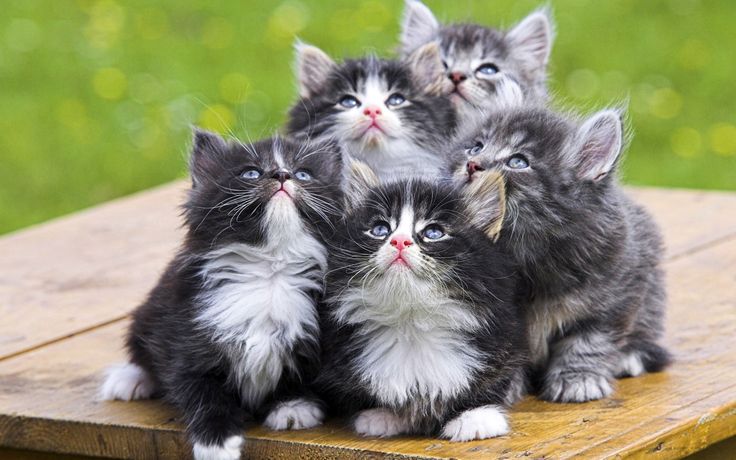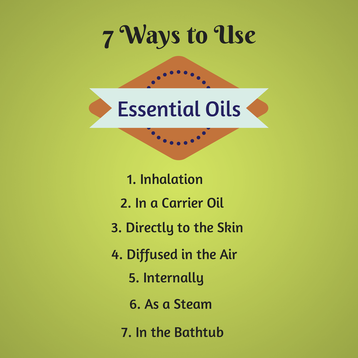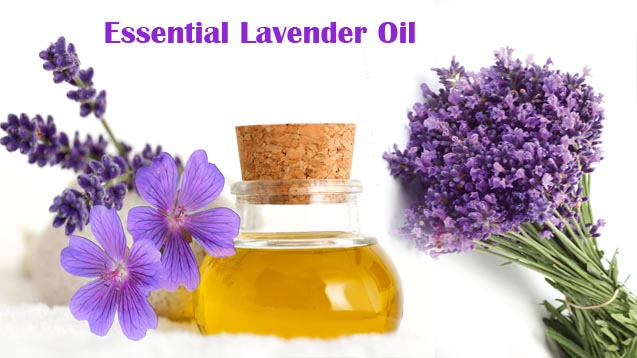Essential Oils for Dogs and Cats
Essential Oils For Pets
Thousands of people are safely, and effectively using essential oils for their families, with some wonderful results. Currently there is published research supporting the use of essential oils for anxiety, skin disease, gingivitis, fungal disease, resistant bacterial disease, pain management, cancer and dementia.
There is historical use of essential oils and healing for thousands of years, but more recently they became recognized in France. A French chemist in the early 1900’s applied lavender oil to a chemical burn; the wound healed faster, and it prevented secondary infection. Essential oils were then used to treat soldiers in WW1 for skin infections, burns, gangrene, and non-healing wounds.
Veterinarians are now using essential oils on animals for a variety of disorders, from skin diseases such as ringworm, natural flea repellents, lavender for anxiety, to oils for treating ligament injuries.
They clearly are a very underutilized alternative healing modality in veterinary medicine.
CATS
Cats use a different system in their liver to detoxify and are particularly sensitive to essential oils that contain polyphenolic compounds. These are so-called “hot” oils like cinnamon, oregano, clove, wintergreen, thyme and birch. Cats appear to be especially sensitive to Tea Tree Oil (melaleuca), so it is best to avoid this oil for them. In general avoid giving your cat any internal essential oils, and apply all oils in a diluted form.
Essential Oil Tips
•Always dilute the oils with a carrier oil like coconut oil or olive oil.
•Avoid eyes, nose, anal area, and genital areas.
•Use cautiously with puppies under 10 weeks of age, very old dogs or pregnant dogs.
•Avoid these oils on dogs and cats regularly: Wintergreen, thyme, clove, cassia, camphor, and oregano. These oils wouldn’t be good to use each day, but are good occasionally.
•Avoid internal use of essential oils in cats, avoid tea tree oil for cats in any form
The following oils can be safely used for Dogs and Cats
•Lavender: The best one to start with. Universal oil, can use pure or diluted. Beneficial for anxiety, such as separation anxiety in dogs, or excessive vocalization in senior cats. May help allergies, burns, ulcers, insomnia, car ride anxiety and car sickness
•Clove Oil for warts.
•Cardamom: Diuretic, anti-bacterial, normalizes appetite, colic, coughs, heartburn and nausea.
•Fennel: assists the adrenal cortex, helps break up toxins and fluid in tissue. Balances pituitary, thyroid and pineal glands.
•Helichrysum: Anti-bacterial, reduces bleeding in accidents, skin and nerve repair. Also useful in cardiac disease.
•Frankincense: ( boswellia) Has helped some cases of cancer. Works on the immune system. Has reduced tumors and external ulcers. Increases blood supply to the brain so can be beneficial with cognitive dysfunction ( dog alzheimers). Alternative practitioners will frequently use frankincense for massage and speed tissue repair.
•Lemongrass oil. Combine with almond oil and massage dogs with injured knees ( ie cruciate injury), or other soft tissue injuries.
•Spearmint: Helps to reduce weight. Good for colic, diarrhea, nausea. Helps balance metabolism, stimulates gallbladder. When diluted and used short term, this oil is helpful for many gastrointestinal issues in cats.
•Cedarwood and Catnip oil are wonderful insect repellents- can be used for fleas, lice, and safely used on cats.
•Chamomile Oil. Spray on linens before for bed for more restful sleep. Calming Salve: Combine 1/2 cup coconut oil with 1/4 cup beeswax and heat until mixed. While cooling stir in 15 drops each of Roman Chamomile and Lavender essential oils.
•Ginger Oil. Put 1–2 drops in water to help with an upset stomach. If you are feeling nauseated, put a drop of Ginger in the palm of your hands and inhale. Rub 1–2 drops on your stomach or bottom of feet to aid digestion
•Vetiver and Rose. This provides another avenue to restore your pet’s appetite. Apply essential oils of Rose and Vetiver to a bandana and tie it around your pet’s neck.
Best Wishes,
Andrew Jones, DVM




You’re addressing every topic!!
Working on a homemade diet at present and I’m seeing results already.
No antibiotics, all natural chicken, veggies, etc.
Lavender mixed in baking soda and lightly sprinkled and rubbed in stops itching and scratching temporarily. Plus they love the body rub!
We appreciate you.
Pam
As a certified aromatherapist, I disagree vehemently with your latest email. I don’t agree that essential oils are okay for cats. As a vet you know that they are lacking a liver enzyme and so cannot process the breakdown of chemicals in the essential oils. You are providing misleading information to a public that is often not educated enough to read up and find out the truth for themselves, and so they trust implicitly in what is told to them. I have seen countless cats die from owners using essential oils, even diffusing essential oils in the room. Not even Lavender is safe for them.
The exception to all of this is the use of SOME hydrosols. Lavender hydrosol is tolerated in very small quantities. There are a few others, but by and large, it is best to steer clear of all essential oils, no matter how much they are diluted.
I’m sure you have your reasons for advocating for the use of essential oils, but I think you are doing your readers a tremendous disservice by providing half truths.
Hi Liana,
Thanks for your comments.
A few specifics about using essential oils for cats (this is in the article)
‘Cats use a different system in their liver to detoxify and are particularly sensitive to essential oils that contain polyphenolic compounds. These are so-called “hot” oils like cinnamon, oregano, clove, wintergreen, thyme and birch. Cats appear to be especially sensitive to Tea Tree Oil (melaleuca), so it is best to avoid this oil for them. In general avoid giving your cat any internal essential oils, and apply all oils in a diluted form.
In veterinary practice I used lavender oil for anxiety, along with tea tree oil (diluted) on dogs with fungal skin disorders.
Dr Melissa Shelton has this to say..
“. I look at essential oils much like I look at pet food quality. I am not surprised when someone feeds “dollar store” brand cat food – and their cat gets urinary crystals and health problems associated with poor diet choice. Do we say that ALL cat food it bad, and that you shouldn’t feed your cat anything? No, we usually ask which cat food you are feeding, and suggest a better, more healthy option. Essential oils are largely lumped into the “all bad” or “all good” category…which is just not true. Most of the referenced problems did not state the “grade” of essential oil used, or even if the use was indeed “improper exposure”. A “scent” grade essential oil should be equated to spraying perfume onto or around your cat or bird…something I am sure we can all agree would not be a good idea.”
The general veterinary wisdom is what you have said..’Avoid all essential oils in cats’- but my experience has been that the cautious use of them is very helpful in specific cat disorders.
As with giving your cat anything, it is best to do your own research, then weigh the pros/cons..
My cat is currently responding well to lavender oil for excessive vocalization.
Dr Andrew Jones
Good answer Doc
My cat looooves valerian. I do not allow him access to it, but if I get it out, he knows. It is like catnip for him. He tries to roll in it.
I have to agree with Liana, very disappointed to read this article, I usually love your videos & articles but this just sounds like a carbon copy ramble of the same dangerous rubbish put out by the young living company, not surprisingly Dr Melissa Shelton’s AnimalEO like the do terra team originated with young living. Can change the name on the bottle but it’s the same crap with the same dangerous directions for use.
A good animal aromatherapist will offer a selection of oils to the animal & let them choose & that works, I know from 15 yrs experience & studying with a good qualified experienced mentor. A good aromatherapist will dilute the oils sufficiently for the animal, as you know animals have so many more scent receptors than we do & unlike us do not experience odour fatigue, how can we possibly force any oil on them in concentrated form?
Internal EO use should never be recommended for anyone, human or animal. Same goes for their ridiculous raindrop therapy.
Aloha Dr. Jones!
How do you recommend using lavender oil for the cats?
Thank You!!!
Lehua
I have a question, how and where do u apply the oils on dogs. I have never tried to use oils before.
My dog suffers from separation anxiety, I’d like to see if the oils work on her.
Thank you
Hi Dr Jones I have a diabetic cat apart from insurlin what more can I do to regulate a safe way to bring down sugar levels.tks yetty
What is the ratio of carrier oils to essential oils?
This is a very generalized article with information clearly meant for people not pets. I am all for using essential oils with animals if somneone knows what they are doing. I trained in England and I can attest that there is so much dangerous information out there today that can be harmful to animals when someone is using Essential oils incorrectly.
The best rule of thumb is if your pet runs from whatever you are trying to “apply” to them (which is the not the best way to use eo’s with pets) then don’t use it. They have primitive instincts that guide them in self-medicating and foraging. A clear sign that they don’t need something is when they try to get away from it. If you apply it anyway you are going against their needs. It’s similar to muscle testing.
Really hope people learn more about this very powerful healing modality before they try it with their pets. It can produce profound healing when used properly.
Best,
Christine AnimalHealer
Mycat has to take Semintra and Aventi plus Methimazole, her kindey’s she is 15 yrs old. Would giving this oil would that be ok for her she is doing good so far? The vet told me Dazy-girl my cat she is to old to be operated on for her thyroid that’s why she is taking the methimazole. This is put on the inside of her ear 2 x a day.
FYI my dog runs from water (bath, spray water, any kind). And it is not harmful to him. So that rule doesn’t really work. My dog runs from the brush, anything that isn’t a usual leave him alone and let him be thing.
Lavender oil is amazing for lots of things. I use the food grade not the perfume kind. My doctor and vet recommends the kind I use.
When using Lavender for separation anxiety, rub it in your hands and then take your hands and rub your dogs ears and behind them. Works wonders! I do lots of research on my own!
Hi, I have a sick cat with a fungal/bacterial infection. I can not afford a vet but I am looking for some essential oils that may help her heal. She is a stray cat. I would like to make a spray with coconut oil, if possible. Can you recommend an oil? Maybe Frankincense? how many drops per 1 cup of oil? Thanks, Cyndi
I’m excited to use EO’s around my cats after years and years of being told how dangerous they were. Using the proper product that isn’t purchased at the grocery store, and applying or diffusing properly is what will makes me feel confident. I absolutely believe Dr. Shelton and her research in how to safely use essential oils around cats.